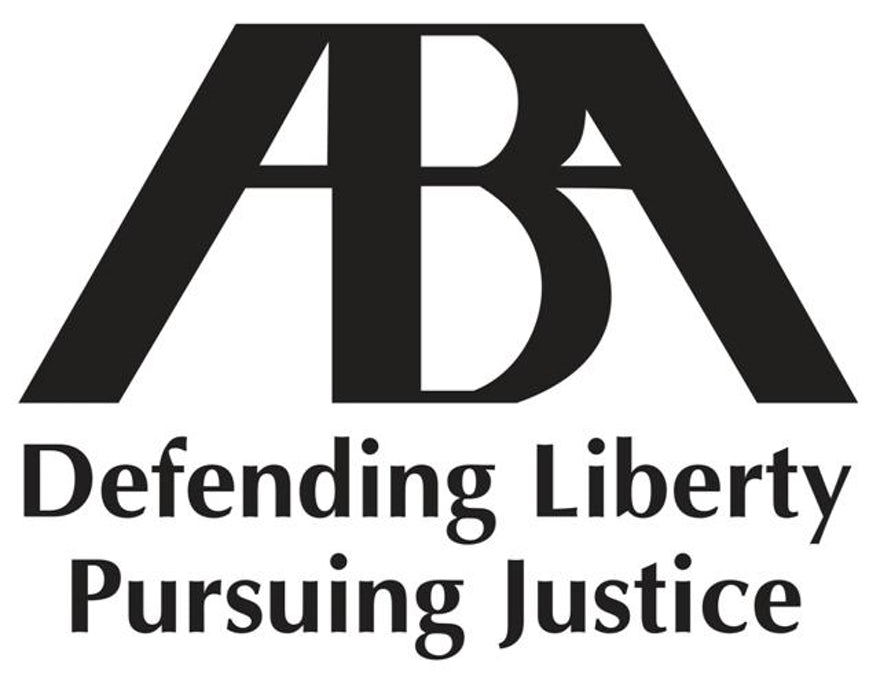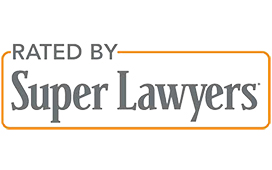Chapter 7 Bankruptcy
Understanding the Differences Between Chapter 7 and Chapter 13 Bankruptcy

When considering bankruptcy, two common options are Chapter 7 and Chapter 13, each offering distinct approaches to handling debt.
Chapter 7 Bankruptcy
Chapter 7 is often referred to as “liquidation bankruptcy.” It allows individuals to eliminate most unsecured debts without the requirement to pay them back. This process is usually quicker, often lasting a few months. However, eligibility is income-based, meaning you must pass a means test to qualify.
Key Points:
Discharge of unsecured debts like credit card balances and medical bills
Quick resolution, typically within months
Requires passing a means test to qualify
Chapter 13 Bankruptcy
In contrast, Chapter 13 is known as “reorganization bankruptcy.” This involves restructuring your debts into a manageable payment plan over three to five years. It’s designed for those with a regular income who wish to keep their property, such as a home or car, while catching up on missed payments.
Key Points:
Debt repayment plan over three to five years
Allows you to retain assets while repaying debts
Suitable for those with a steady income
Weighing the Pros and Cons
Choosing between Chapter 7 and Chapter 13 depends on your financial situation and personal priorities. Chapter 7 is ideal if you’re looking for a quicker debt relief solution, while Chapter 13 offers a structured plan to keep valuable assets.
It’s important to consult with a financial advisor or bankruptcy attorney to determine which option aligns best with your circumstances.
What is Chapter 7 Bankruptcy?
Are you looking to get in control of your debt? Debt can happen to the best of us. But, if you feel like you’re getting in over your head with debt, it may be time to take a more effective approach that can help you get rid of debt and help you take back control of your life.
With that said, one way to get rid of some of your debts is by filing for Chapter 7 bankruptcy. Chapter 7 is a common option for some individuals who have excessive debt and need a better financial plan to reduce and charge off debts. If you’re in Nevada and interested in learning more about solutions to debt, read on to learn more about Chapter 7 bankruptcy.
Chapter 7 bankruptcy is known as liquidation bankruptcy. This means that Chapter 7 has the ability to clear various unsecured debts. Generally, those who have fallen too far behind on their bills and don’t have the finances to get caught up will file for Chapter 7 bankruptcy.
It’s important to note that Chapter 7 bankruptcy is a last resort option because, in exchange for clearing debts, a person may have to give up some of their possessions.
How Does Chapter 7 Work?
Once a person files for Chapter 7 bankruptcy, the court will award an automatic temporary stay on all of their current debts. This means that creditors are unable to do the following:
- Attempt to collect payments
- Garnish your wages
- Foreclose on your home
- Repossess property
- Evict you
- Turn off your utilities
In addition to this, the court will take legal possession of your property and a designated bankruptcy trustee will be assigned to your case. The bankruptcy trustee will review your finances, assets, and ultimately serve as an overseer of your case. The trustee will also sell the property you are unable to keep as part of Chapter 7. This property will be used to repay your creditors.
Most Chapter 7 bankruptcy cases are “no asset” cases. This means that the individual’s property is exempt or there is a lien against the property. The entire process of Chapter 7 bankruptcy takes around 4 to 6 months from the initial filing. At this point, the court will discharge the remaining debts you have.
Who Should File Chapter 7?
There are certain requirements that must be met in order to file for Chapter 7 bankruptcy. With that said, any person who meets these requirements and believes that filing for bankruptcy is their last option should move forward with filing. The requirements for filing for Chapter 7 bankruptcy include:
- Financial Counseling: Before filing, you will need to complete an individual or group counseling course. This course must be from an approved credit counseling agency and must be completed within 180 days before filing in order to be accepted.
- Income Analysis: The average of your monthly income from the past 6 months must be less than the median of the same household type. Or, you must pass a means test. This test examines your disposable income to decide whether your income is sufficient to make partial payments. This helps rule out your ability to pay.
- Previous Filing: You cannot have previously filed for Chapter 7 bankruptcy within the past 8 years or Chapter 13 within the last 6 years.
Understanding Chapter 7 Bankruptcy: Benefits and Process
Chapter 7 bankruptcy, often referred to as “straight bankruptcy,” offers individuals a chance to alleviate their overwhelming debt burden and start anew. But what exactly are the benefits and process involved in filing for Chapter 7 bankruptcy?
Benefits of Chapter 7 Bankruptcy
- Debt Discharge: The most significant advantage is the discharge of most unsecured debts, like credit card bills and medical expenses. This means you’re no longer legally required to pay those debts.
- Quick Process: Typically completed in a few months, Chapter 7 allows for a relatively swift resolution compared to other bankruptcy types.
- Fresh Start: Upon completion, individuals emerge with a clean slate, free to rebuild their financial lives without the previous debt dragging them down.
- Exemptions Protect Assets: Contrary to popular belief, not all assets are liquidated. The law provides exemptions for essential items, such as your home, car, and personal possessions, meaning you can retain crucial property to help you start over.
The Chapter 7 Process
- Eligibility Check: Firstly, you’ll need to pass the means test, which assesses your financial situation to ensure you qualify for Chapter 7.
- Filing Petition: With the help of a bankruptcy attorney, you’ll file a petition with the bankruptcy court. This includes all your financial information, such as income, debts, and assets.
- Automatic Stay: Once filed, an automatic stay is enacted, which temporarily halts most collection actions against you, providing immediate relief from creditors.
- Trustee Appointment: A trustee is appointed to oversee your case. Their role is crucial in evaluating your assets and determining which, if any, should be sold to pay creditors.
- Meeting of Creditors: You’ll attend a meeting with your creditors, though they rarely attend. This meeting allows the trustee to ask questions related to your bankruptcy papers.
- Asset Evaluation: Many Chapter 7 cases are “no-asset” cases, meaning all assets fall under exemptions, and no property needs to be liquidated.
- Debt Discharge: Finally, eligible debts are discharged, releasing you from their legal responsibility. However, certain debts like student loans, recent taxes, and child support aren’t dischargeable.
By understanding this process and leveraging the exemptions available, Chapter 7 can offer significant relief and a clear path toward financial recovery. Consulting a knowledgeable bankruptcy attorney ensures you maximize your benefits while navigating the complexities of the procedure.
Debts Included in Chapter 7 Bankruptcy
Chapter 7 bankruptcy successfully discharges certain debts. If you plan on filing for Chapter 7, it’s important to understand which debts are included to ensure this type of bankruptcy is right for you. With that said, this type of bankruptcy generally enables you to discharge unsecured debts.
Here is a list of debts that can be charged off when filing for Chapter 7.
- Credit card debt
- Medical bills
- Unsecured personal loans
Debts Not Included in Chapter 7 Bankruptcy
Chapter 7 bankruptcy can help most people get rid of a good portion of their debts. But there are some debts that won’t be removed in Chapter 7 bankruptcy. These debts include:
Most Back Taxes
Most of your back taxes owed will be ineligible for a discharge. This may include:
- Income taxes
- Social security taxes
- Any penalties you owe
- Unpaid tax withholding from your employees
Keep in mind that you may be able to get select back taxes discharged if they are from a return that was due more than 3 years ago and you meet specific qualifications.
Child Support and Alimony
Two other debts that you won’t be able to discharge in a Chapter 7 bankruptcy are child support and alimony. Both of these types of debt are specifically excluded as per 523(a)(5) of the Federal Bankruptcy Code.
Student Loans
If you have student loans, no matter the amount, you will not be able to get rid of them in bankruptcy if you’ve recently graduated or stopped going to school. However, it’s a possibility that the judge may discharge your student loans if they believe it is causing you undue hardship. For this to occur, the judge must believe that there is no foreseeable way for you to pay the debts either now or for a significant portion of the repayment period.
Unlawful Debts
Chapter 7 bankruptcy won’t remove debts that were incurred by unlawful acts, such as:
- Fraud
- Embezzlement
- Larceny
- Reckless acts
Mortgage and Property Liens
If there is a lien on your property, like a home mortgage, it can’t be discharged through Chapter 7. In the state of Nevada, those who file for Chapter 7 bankruptcy can keep their home if they record and claim the Nevada homestead exemption. This will protect the equity in the property.
Your Car Loan
If you want to keep your vehicle, then it won’t be included in Chapter 7 bankruptcy. If you are making payments, the loan will be secured by the car.
How Does Chapter 7 Affect My Credit Score?
One major concern when it comes to filing any type of bankruptcy is the effect it has on your credit score. Ultimately, filing for bankruptcy means that you won’t be paying debts as agreed. For this reason, filing for Chapter 7 bankruptcy may have a significant impact on your credit score. It’s important to note that Chapter 7 bankruptcy will remain on your credit report and affect your credit scores for 10 years from the filing date.
Although Chapter 7 will remain on your credit report for this length of time, it doesn’t necessarily mean that it will prevent you from obtaining any kind of credit moving forward. In fact, many people are able to apply and obtain credit after filing for Chapter 7 bankruptcy. Additionally, you may even be able to get a car loan after filing for bankruptcy. But keep in mind that you will most likely have a high-interest rate.
Get Help From a Trusted Chapter 7 Bankruptcy Attorney
If you’re thinking about filing for Chapter 7 bankruptcy, consider getting help from a trusted bankruptcy attorney in Nevada. A bankruptcy attorney offers invaluable support throughout your bankruptcy case.
An attorney can help you effectively plan by ensuring that you’ve exhausted all alternatives to bankruptcy and help you decide whether Chapter 7 bankruptcy is the right type of bankruptcy for your financial needs.
In addition to this, a bankruptcy attorney will help you prepare for bankruptcy by supporting you in the process. An attorney can help you perform the mean test to see whether you qualify for Chapter 7 bankruptcy, help you value your property, choose and apply for exemptions, and determine the discharge of debts.
Even more, a trusted bankruptcy attorney will help you throughout the bankruptcy process by ensuring you complete schedules and other essential paperwork and helping you prepare for what’s coming next in your case. An attorney will also ensure that your testimony is accurate and complete, which will be necessary for court.
Here at Nevada Bankruptcy Attorneys, we’re here to help you on your road to financial recovery. If you’re thinking about filing for Chapter 7 or Chapter 13 bankruptcy, we’re here to help.
We know that bankruptcy can be an overwhelming process, but having a trusted attorney who can help you navigate the process makes all the difference in having a successful case. If you want to learn more about how we can help you in your bankruptcy case, contact us to learn more.
Explore the key differences and benefits of Chapter 7 vs Chapter 11 bankruptcy to determine which bankruptcy chapter suits your financial needs.







